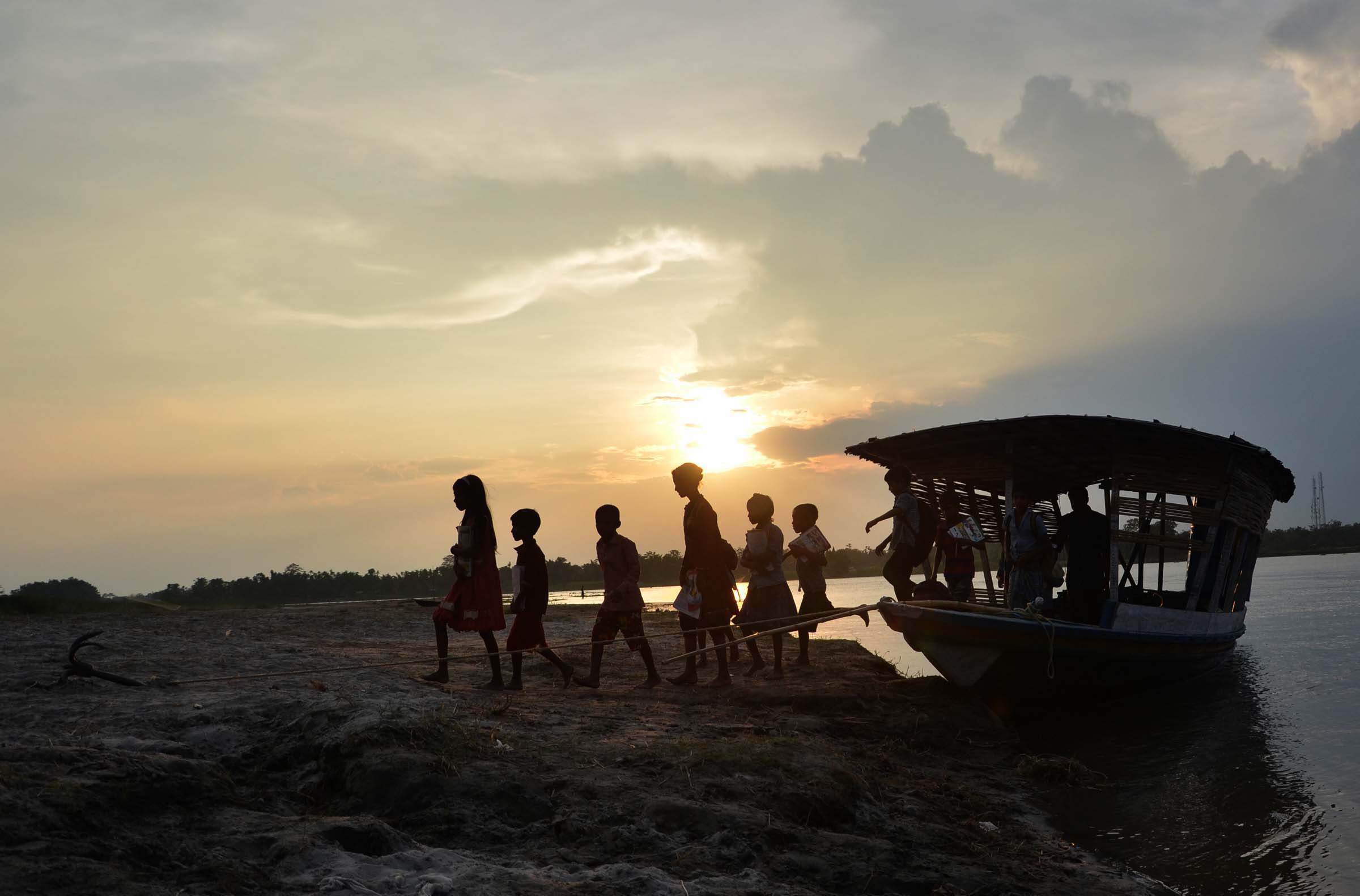
The underprivileged children who live in char or sandbars in Assam’s Barpeta district could never imagine a library. Struggling to survive floods and acute poverty, they will now have the choice to escape daily woes in a small land of books being created for them by a group of young professionals.
Concerned about the plight of the char dwellers, these young people have initiated a move to gather books to up a library on the banks of river Beki, one of the major tributaries of the Brahmaputra.
“We have been very used to the pathetic conditions of the char dwellers, especially their children. Their future is dark, if people like us don’t take any step. I think we can make a change. So, I decided to initiate this step of collecting books from my friends and colleagues,” Abdul Kalam Azad, a research scholar, who initiated the step, told The Citizen.
The group is planning to set up the library at Mazidbhita char shortly.
In respond to this call, more than 600 books have been collected from different sources. Many of Kalam’s friends have volunteered to donate books while some of the locals have offered logistic support like setting up the actual library.
“I’m glad to see the people have responded to our appeal in a grand way. But we have made it clear that there shouldn’t be any book on strong political and religious ideologies. Apart from that, we welcome all kind of books,” Kalam said.
Kalam who also runs an NGO called Jhai Foundation has worked in these areas on flood and rehabilitation. “ The conditions are pathetic. We have succeeded in minimizing the losses this year with Plinth Rising (a higher platform of earth to get rid of flood water). During our work there we interacted with the children and thought of this library,” Kalam athe tenure I came across the plight of the children and I seriously thought of this library,” Kalam added.
According to the latest Assam Human Development Report (AHDR) the incidence of multi-dimensional poverty is found to be the highest in char areas, which is 44.59 percent. The report also finds that landlessness is marginally higher in the char areas and amongst Muslims.
Among the religious groups, the Muslims, comprising a little over 32 percent of the population in the state, have been found to have the lowest total literacy rate in the age group 7+ years of 75.8 percent. The literacy rate in the age group 15+ years of the Muslims is again the lowest 67.7 per cent amongst the religious communities.
Similarly, spatial diversity-wise, the char area reflects the lowest literacy rates in both the age groups 7+ years and 15+ years which is 75 and 67.4 percent respectively.
And it is lowest in the 24 age group which is 59.6 percent.
“The condition of these people is sad. Many children have to remain out of school due to poverty. And it doubles the trouble when they grow up. The education is must for the upliftment of these people,” Biju Boro, Guwahati based senior photojournalist who has worked on several projects in these areas, told The Citizen.




